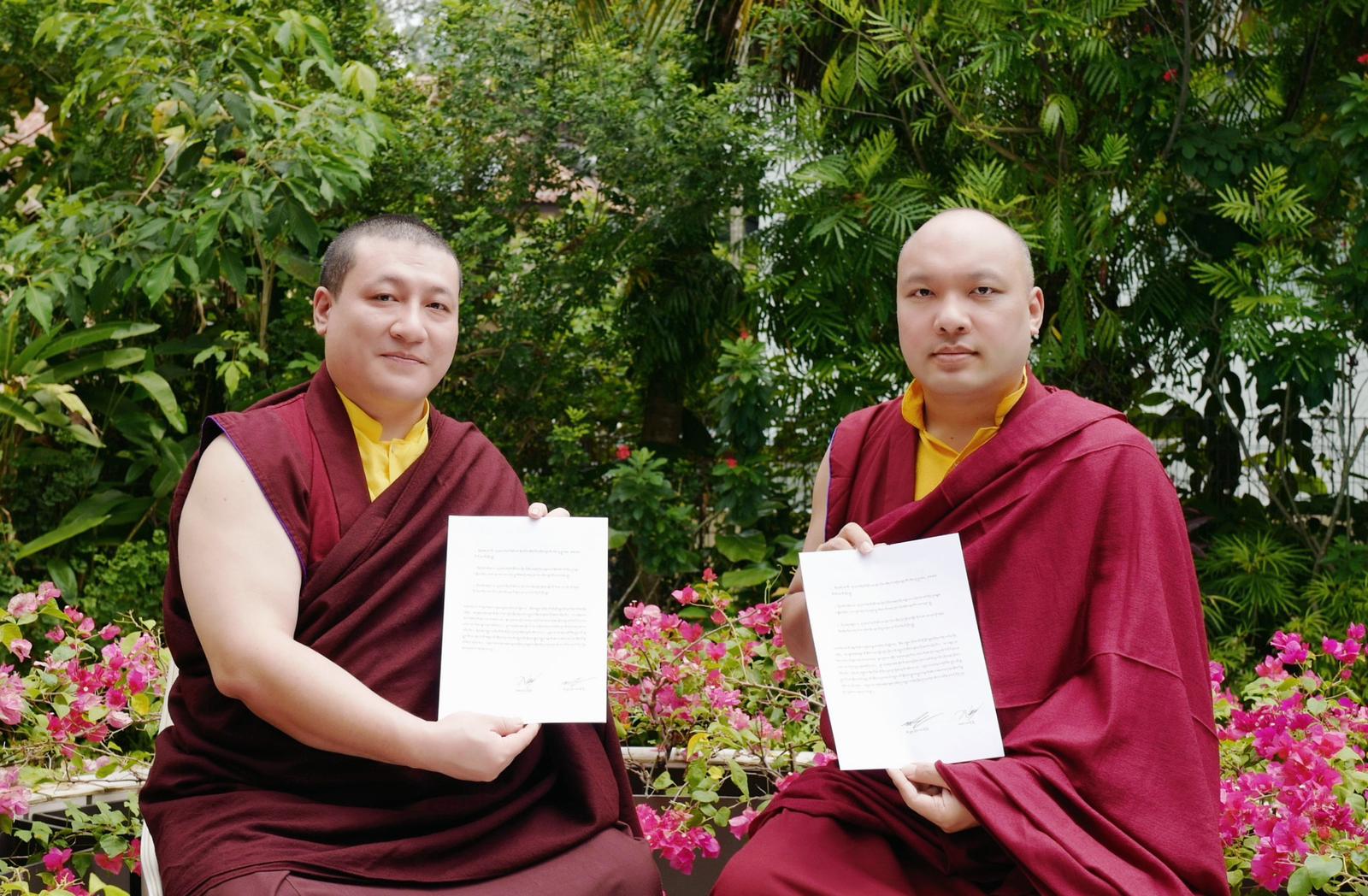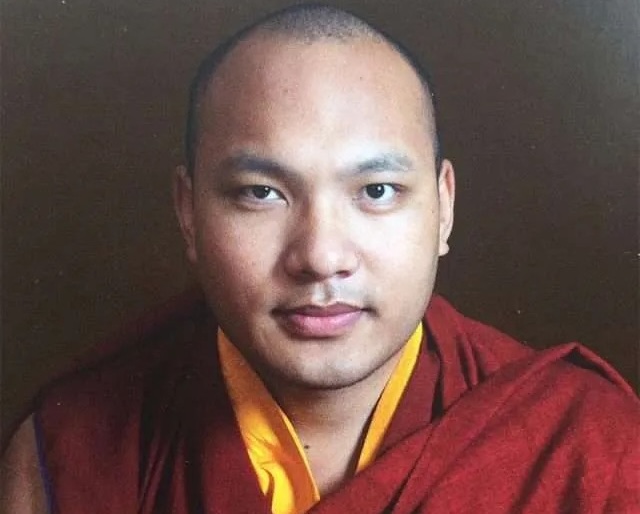By Tsering Namgyal Khortsa
Tsering Namgyal Khortsa is the author of His Holiness the 17th Karmapa Ogyen Trinley Dorjee: A Biography, Hay House (2013).
Gyalwang Karmapa Ogyen Trinley Dorje’s father Karma Dondrub Tashi passed away in Tibet on the 15th day of Vesak, a very auspicious day often chosen by holy beings to pass away into Parinirvana.
Unfortunately, the Karmapa could not meet his father before his passing. According to the Radio Free Asia, Chinese authorities rejected the Karmapa’s father’s application for a travel permit to visit bigger cities or even abroad, preventing a long-awaited reunion after 25 years of separation.
The Karmapa, who was born in a nomadic family in 1985 amid auspicious signs, fled to India in 2000 at the age of 14 with his entourage, seeking asylum in India. His escape from constant Chinese state surveillance brought joy to Tibetans and devotees, as he hoped to study and live freely in India, the land of the Buddha, and continue his spiritual activities.
However, his aspirations were thwarted by the heavy restrictions imposed on his movement by the Indian administration. Wild media allegations, fueled by sources in the Indian establishment, even labeled even him a “Chinese spy,” subjecting him to endless harassment.
This resulted in a Kafkaesque conundrum, effectively hindering the Karmapa’s ability to settle in India and leading to his exile in the West.
In 2017, after visiting the West, he decided not to return to India, subsequently taking up a foreign citizenship, which displeased the Indian government. He took this opportunity to even meet his former rival claimant, Thaye Dorje, twice in Germany, signifying a truce in the bellicose tensions that once marked the two factions of the Kagyu School. This reconciliation was seen as a masterstroke by many Tibetan devotees. Thaye Dorje was recognized by the 14th Shamar Rinpoche as one of the 17th Karmapas. The Sharmapa passed away in 2014.

In a sign that the 17th Karmapa wanted to leave behind this fractious history, he even issued a joint statement with Thaye Dorje that they will jointly recognize and raise the reincarnation of Shamar Rinpoche. (Editor’s note: there are commentators and devotees that see factions in Thaye Dorje’s camp as having abdicated responsibility for the split in the first place. We have published a piece on the difficulties regarding the two Karmapas despite their joint statement on the reincarnation of Shamar Rinpoche.)
This statement has sparked hopes that the two camps might finally put down their arms and peace will prevail within the Karma Kagyu school of Tibetan Buddhism, plagued by discord over the past three decades.
While he is grateful for the Indian government for providing him with the asylum, he was deeply hurt by constraints on his movement in India, and by having no permanent residence to stay in India for the last 20 years. The spirit of freedom and openness is vital for any spiritual enquiry and pursuit, forcing him to make a painful decision to not return to India. The decision disappointed many devotees and Tibetan followers, especially the youth, who saw him as a beacon of hope for the future of Tibet.
Despite these challenges, he has said repeatedly expressed gratitude to the Indian government and its people and has expressed his genuine desire to return to India. After the Dalai Lama, he is one of India’s greatest ambassadors of Buddhism, and his work in the propagation of Dharma, and his popular teachings on climate change and skillful ways with which he spoke on the challenges of the modern world in his talks and his bestselling books has turned him into a global spiritual icon.
As the Dalai Lama approaches 90, the Karmapa is widely seen as an important successor to the Tibetan spiritual leader and, for many Tibetans, a symbol of the Tibetan movement. Moreover, the relationship between the two has been akin to that of father and son. With his biological father’s passing, many feel that the Karmapa should assume more responsibility for his aging spiritual father.
As a poet and an intellectual, the Karmapa knows that his identity as a Tibetan refugee is intertwined with Tibet’s fate. Like the Karmapa, many Tibetan refugees are separated from their parents and their loved ones because of their stateless status. Given his youth, intelligence, and large following inside Tibet, he has the potential to uplift the condition of fellow Tibetans, provided the right conditions are met.

Outside Tibet, the elegant simplicity and depth of his teachings has resonated widely, earning him popularity across national and cultural divides, a testament to the belief that he is indeed a child prodigy who has lived up to his early promise.
His followers include members of the Chinese diaspora, Western countries, and from across the globe. He is especially revered by Buddhists in the Himalayan region, notably in the Indian state of Sikkim, where they long for his presence. His main headquarters, built by his predecessor, the 16th Karmapa, is based in Rumtek, Sikkim, which he has not visited. The Sikkimese government has gone out of its way to invite him to the state as per the wishes of its people.
Successive Sikkimese chief ministers have taken the matter to the central government, including during their meetings with Prime Minister Narendra Modi.
The Indian government is reportedly leaving no stone unturned in facilitating his return. There is hope that this dream sees realization at the soonest and that the Indian government treats him with respect and openness that he deserves.
It is a pity if that his spiritual potential is not allowed to come to full fruition for the benefit of all the sentient beings in a world beset by violence, disaster and climate change.
At 39, he is at the height of his spiritual powers.
Related features from BDG


